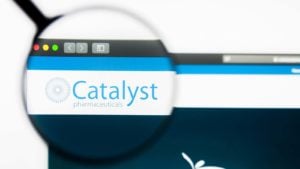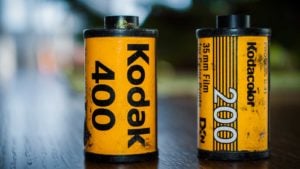
9 Robinhood Stocks Flying Under the Radar
These companies give you a fascinating look into young traders’ psychology
Prior to the novel coronavirus pandemic, many financial experts bemoaned that young people were not investing in the stock market. According to a Gallup poll in 2018, less than half of young Americans put their money into equities. Researchers pointed to the psychological impact of the 2008 crash as one explanation. However, with the Covid-19 crisis came the opposite phenomenon. Robinhood stocks started to surge.
Suddenly, those fortunate enough to keep their office jobs found themselves with extra time. Sure, people had to work remotely, and goofing off during a pandemic isn’t exactly a great way to guarantee job stability. However, worker bees no longer had to commute, which translated to extra free time. And many found themselves gravitating toward the popular Robinhood trading app.
Additionally, even folks who were laid off could participate in the mass purchasing of Robinhood stocks. Thanks to an unprecedented rescue package, millions of Americans received state unemployment benefits plus $600 weekly from the federal government. For many young households, this seriously bolstered engagement on the trading platform.
Therefore, one of the biggest winners in this pandemic — besides technology firms — was Robinhood. The app saw an explosion of new users as the coronavirus began shutting down the U.S. economy. If you’ve wondered why a bifurcation exists between pain on Main Street and jubilation on Wall Street, it could be due to the bullishness toward Robinhood stocks.
Some of the names include the usual suspects. However, Robinhood features a number of lesser-known companies you may not have heard of. Here are nine such examples:
- Catalyst Pharmaceuticals (NASDAQ:CPRX)
- New Residential Investment (NYSE:NRZ)
- TherapeuticsMD (NASDAQ:TXMD)
- Kosmos Energy (NYSE:KOS)
- Rocket Companies (NYSE:RKT)
- Vivint Solar (NYSE:VSLR)
- Eastman Kodak Company (NYSE:KODK)
- Prospect Capital (NASDAQ:PSEC)
- Sorrento Therapeutics (NASDAQ:SRNE)
On this list of Robinhood stocks that you may not be familiar with, I’ll give a brief rundown of what they are and why they received so much interest. With this information, you’ll gain a greater understanding of the psychology of the modern investor.
Robinhood Stocks: Catalyst Pharmaceuticals (CPRX)

With 2020 being the year of the pandemic, it’s no surprise that many Robinhood stocks focus on the broader healthcare space. Therefore, on paper, it shouldn’t be shocking that Catalyst Pharmaceuticals has ranked as the most popular investment on the trading app at time of writing based on analyst rating. What is surprising is that CPRX stock is not a play on the coronavirus.
Indeed, it is quite the opposite of a pandemic play. Catalyst Pharmaceuticals focuses on ultra-rare diseases. Specifically, the company provides adult patients of Lambert-Eaton myasthenic syndrome a treatment option via its Firdapse (amifampridine) drug. I must admit it is refreshing to see a pharmaceutical company focus on its primary mission without involving itself in confusing diversions.
Unfortunately, that fact alone hasn’t helped CPRX stock. Although the U.S. Food and Drug Administration has approved Firdapse to treat LEMS, the company is testing it for other syndromes. When a late-stage clinical trial of Firdapse failed to meet its goals, Catalyst shares plunged in August.
It’s still quite volatile in September, though the fallout has slowed significantly.
I believe traders see a contrarian opportunity. Fundamentally, the company has impressed with its developmental progress on rare-disease drug candidates. Still, this is probably going to be a choppy ride compared to other Robinhood stocks, so only those with iron stomachs need apply.
New Residential Investment (NRZ)

Billed as a “leading provider of capital and services to the mortgage and financial services industries,” New Residential Investment caught me off guard. At time of writing, NRZ stock was ranked within the top 10 most popular Robinhood stocks based on analyst ratings. According to the trading platform’s algorithms, New Residential has an 89% buy rating.
To put this into perspective, NRZ stock was ranked just below Amazon (NASDAQ:AMZN) and just above Peloton (NASDAQ:PTON). Now, I can appreciate why traders love AMZN and PTON. Not only have they been firing on all cylinders this year, their fundamentals make sense. New Residential? I’m having difficulty seeing it.
To be fair, some evidence exists that people from urban areas are taking their higher wages and moving to the suburbs, rural areas or even out of state. So, the catalyst to buy New Residential is not entirely fantastical. However, not everyone is participating in the rush to move away.
From the perspective of the economy, I find it difficult to believe that the recent real estate boom will continue. However, many folks disagree with me, which is why NRZ is one of the most popular Robinhood stocks.
Robinhood Stocks: TherapeuticsMD (TXMD)

Among the criticisms of Robinhood stocks is that quite a few are speculative. As the Wall Street Journal detailed not too long ago, several newbies have rushed into the markets. Perhaps because of the collective enthusiasm, some investments that have no business enjoying upside demand suddenly became hot commodities. TherapeuticsMD gives detractors more than their fair share of ammunition.
At first glance, you might appreciate TXMD stock for its underlying business: Helping women at various life stages control their reproductive health. I’d rather not go into details about what that means specifically to not trigger unwanted attention, and to also not give my editor a heartache. But let’s just say TherapeuticsMD is a socially conscious investment.
Unfortunately, that doesn’t mean it’s a viable one. When drilling into the financials for TXMD stock, I see some ugly details. While the underlying company generated $10.7 million in revenue for its most recent quarter, it also accumulated over $51 million in operating expenses. Furthermore, its long-term debt is nearly $244 million.
With a share price of just over $1, TXMD is at risk of being delisted. If so, TherapeuticsMD will have trouble raising funds. Clearly, this is one of the Robinhood stocks to avoid.
Kosmos Energy (KOS)

Another Top 100 listing among Robinhood stocks that you may not have heard of is Kosmos Energy. At the time of writing, KOS stock had a 38% buy rating. Frankly, I’m not sure where that 38% came from.
Look, I’m not trying to insult the company in any way, nor am I criticizing those who bought KOS stock. It’s just that in this pandemic, oil firms represent some of the last entities you should be considering for your portfolio.
And if you do consider them, you should realize that this sector is a speculative bet at best. Of course, that applies three-fold for a random company like Kosmos.
Having said that, is there any case for KOS stock? In this crisis, you can never say never. As I’m sure you’ve all experienced, some crazy dynamics have occurred. But with benchmark oil indices hurting due to a questionable demand profile, your best bet is to avoid Kosmos. Even if you’re a gambler, better wagers exist.
Robinhood Stocks: Rocket Companies (RKT)

With all that has transpired because of the Covid-19 crisis, you may not have heard of Rocket Companies. In August, the organization launched its initial public offering to much fanfare. But since early September, RKT stock was pummeled due to concerns about the underlying company meeting overly optimistic expectations.
Later, Susquehanna analyst Jack Micenko downgraded RKT stock to “negative,” which is the equivalent of a “sell.” While calling Rocket a “best in class mortgage company,” Micenko fears that RKT has gotten ahead of itself. Also, Rocket may not offer favorable comparisons to other fintechs.
Specifically, one major headwind is that “Rocket’s refinancing business is highly reliant upon interest rates and, Micenko noted, is likely to drop should rates rise.”
These are legitimate concerns. However, it’s also possible that the critics are missing the forest for the trees. Rocket specializes in convenient digital solutions for complex transactions, a platform that appeals to millennials. As evidence, the company’s website claims that 96% of all eClosings in the U.S. happen with Rocket Mortgage.
Although Robinhood stocks feature no shortage of crazy speculative bets, I like RKT for the long term.
Vivint Solar (VSLR)

Those who are predisposed to buying Robinhood stocks have likely heard about Vivint Solar. However, as a clean energy play, VSLR stock may be an unknown commodity for those in older demographics. For full disclosure, I haven’t been the biggest proponent of so-called green initiatives. But as you can see with the dramatic rise of Vivint shares, I have been wrong more often than not.
On a year-to-date basis, VSLR stock has absolutely killed it, gaining nearly 335%. However, investors may not want to chase momentum here. For one thing, Vivint shows evidence of needing a healthy correction. Secondly, the broader markets have turned volatile, with the technology sector leading in the printing of red ink. Therefore, patient investors can probably get a discount on VSLR if they wait.
But in the long run, this is another one of the Robinhood stocks that may have a bright future. Primarily, Americans have recognized the need for alternative energy sources with blackouts, particularly in California, adding to pandemic woes.
Robinhood Stocks: Eastman Kodak Company (KODK)

No, I’m not trying to insult your intelligence. I know full well that you’ve heard of Eastman Kodak Company. But I’m sure more than a few of you are curious as to why KODK stock is included among the top 100 most popular Robinhood stocks.
Virtually all of that enthusiasm came in the second half of July. As Forbes’ contributor Peter Cohan noted, KODK stock skyrocketed on “news that the photography pioneer is borrowing money from the government to manufacture ingredients for generic drugs such as the malaria treatment hydroxychloroquine.”
Since the extreme enthusiasm hit a peak, it’s been a downward trek for Eastman Kodak. True, some investors are buying shares, probably on the idea that KODK could rebound. Sadly, I doubt this will be the case. Along with the vulnerabilities of the company, clinical studies demonstrate that while hydroxychloroquine does no harm, it offers no benefit.
In my opinion, KODK is one of the Robinhood stocks trading on emotions rather than fundamentals. Unless you’re a speculator, you should avoid it.
Prospect Capital (PSEC)

Prospect Capital is one of the business development companies (BDCs), making debt and equity investments in U.S. middle-market businesses. In the pre-pandemic era, BDCs made sense, especially under an administration like President Donald Trump’s. But today, that’s a different story.
As with the other Robinhood stocks, I don’t have anything bad to say about Prospect Capital. Tragically, though, the underlying circumstances are simply unfavorable to its core revenue stream. With the pandemic disproportionately hurting small- to mid-sized businesses, I’m not comfortable recommending PSEC stock.
However, Robinhood traders don’t share my reservation, as evidenced by Prospect being one of the top 100 most popular stocks. Why, given the extreme pressure imposed on the company, would people want to take a shot here?
Likely, the answer is the dividend yield. According to its website, Prospect has paid a continuous, regular dividend since inception. Therefore, the current double-digit yield may have attracted those who are not financially well-versed. Whatever the case, only hardcore speculators need apply for PSEC stock.
Robinhood Stocks: Sorrento Therapeutics (SRNE)

For those of you who have been paying close attention to Covid-19 plays, you probably have heard of Sorrento Therapeutics. For anyone else, Sorrento is but one of thousands of biotech firms in this country. Without the coronavirus pandemic, this company would have likely been lost in the shuffle.
Before the crisis, Sorrento specialized in oncology. But with the sudden demand for a Covid-19 solution, the company made a sharp pivot. Presenting myriad treatment, vaccine and testing solutions, the Robinhood community responded positively to SRNE stock. At one point trading a little above the $1 level, shares soared to double digits.
However, the party quickly faded. Part of the reason is that the harsh realities of Covid-19 treatments and vaccines hit the market. Specifically for SRNE stock, the underlying solutions incurred viability questions. For instance, while Sorrento’s STI-1499 antibody demonstrated impressive preclinical results, human trials may reveal a more down-to-earth outcome.
With investors disappointed in other Covid-19 plays, SRNE shares came crashing down. Nevertheless, the stock does look more attractive at its current price, although it remains a high-risk, high-reward venture.
On the date of publication, Josh Enomoto did not have (either directly or indirectly) any positions in the securities mentioned in this article.
A former senior business analyst for Sony Electronics, Josh Enomoto has helped broker major contracts with Fortune Global 500 companies. Over the past several years, he has delivered unique, critical insights for the investment markets, as well as various other industries including legal, construction management, and healthcare.